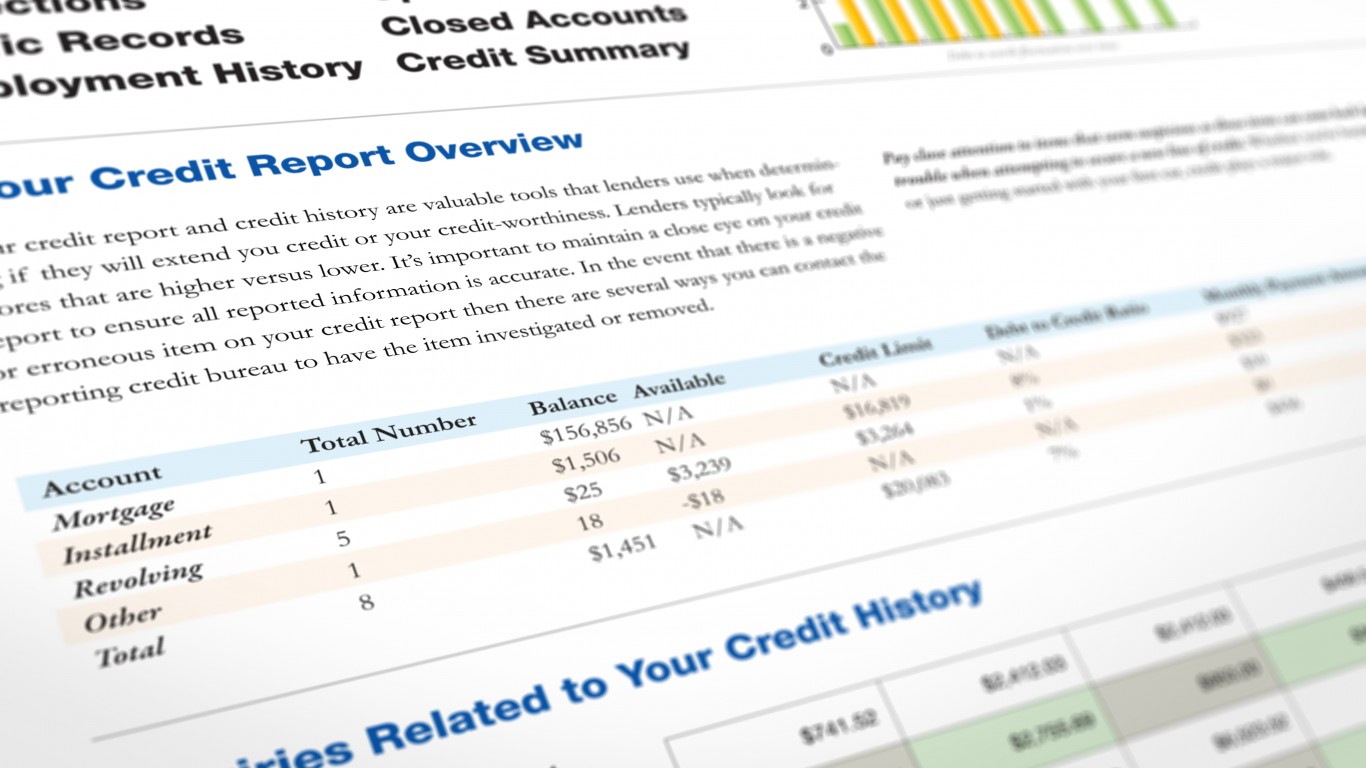Divorced? How to Claim Social Security Benefits on Your Ex’s Record
Typically, people become eligible for Social Security by working and paying into the program. But that’s not the only path to collecting Social Security in retirement. Even if you never worked, you may be entitled to spousal benefits from Social Security. And that holds true even if you’re no longer married to the person […] The post Divorced? How to Claim Social Security Benefits on Your Ex’s Record appeared first on 24/7 Wall St..

Key Points
-
You don’t need to still be married to claim Social Security on an ex-spouse’s record.
-
It’s important to understand how spousal benefits work for divorcees.
-
Time your filing right so your benefits provide the income you need throughout retirement.
-
What’s a realistic retirement budget? It depends. Click here to talk to a professional today and learn more (Sponsor)
Typically, people become eligible for Social Security by working and paying into the program. But that’s not the only path to collecting Social Security in retirement.
Even if you never worked, you may be entitled to spousal benefits from Social Security. And that holds true even if you’re no longer married to the person whose record you plan to claim Social Security on.
But if you’re going to get spousal benefits as a divorcee, it’s important to know the rules. It’s also important to file for benefits strategically so you’re able to secure the income you need to cover your retirement costs.
How spousal benefits work for people who are divorced
It’s not a given that you’ll qualify for Social Security spousal benefits if you’re divorced. You’ll need to have been married for at least 10 years to claim Social Security on an ex-spouse’s record. You should also know that generally, if you remarry, you’ll lose eligibility for Social Security spousal benefits.
As far as when you can claim those benefits goes, it depends on how long you’re divorced for. If you’ve been divorced for at least two years, you can claim Social Security spousal benefits on your ex’s record even if they haven’t yet signed up for Social Security.
There are also age-related requirements you’ll need to meet. Whether you’re claiming Social Security on your own earnings record or you’re claiming spousal benefits, you need to be at least 62 years old to get benefits. And if you don’t wait until full retirement age (FRA) to file for Social Security, whether on your own record or in the context of spousal benefits, your monthly payments will be reduced on a permanent basis.
You should also know that if you’re claiming Social Security on your own earnings record, there are financial benefits to delaying your claim past FRA. But those don’t apply to spousal benefits.
Your spousal benefits max out at 50% of the sum your spouse is entitled to at FRA. So there’s no sense in delaying a spousal benefit claim beyond your FRA, since it won’t result in more money.
You should also know that you’re allowed to claim Social Security on an ex-spouse’s earnings record even if your former spouse has since remarried. Your ex-spouse also can’t stop you from claiming spousal benefits, and the amount of money you receive from Social Security won’t impact the amount of money your ex gets. In fact, the Social Security Administration generally won’t even notify your ex-spouse that you’ve claimed benefits on their record, so it’s basically none of their business.
What if you’re eligible for Social Security on your own?
It may be that you worked and accumulated enough credits in your lifetime to qualify for Social Security based on your own earnings record. In that case, you may still be entitled to spousal benefits — but you can’t collect both.
What this means is that Social Security will pay you the larger of your monthly benefit or your spousal benefit. But you can’t walk away with a double payment.
For example, let’s say that based on your earnings record, you’re entitled to $1,400 a month from Social Security. If your ex-spouse is entitled to $2,900 a month, then your spousal benefit could be worth up to $1,450. And in that case, that’s what Social Security would pay you. But you wouldn’t get $1,400 of your own plus a $1,450 spousal benefit.
Of course, that $1,450 assumes that you wait until FRA to take benefits. Remember, you can reduce your spousal benefit by filing early.
If you’re not sure when to claim Social Security, whether on your own earnings record or on your ex-spouse’s, then it’s a good idea to consult a financial advisor and see what they recommend. An advisor can walk you through the rules and help you decide when to file. They can also explain the financial implications of signing up for Social Security at different ages.
Even if you have savings, Social Security might serve as an important retirement income source. So it’s important to get the timing of your claim right, whether in the context of spousal benefits or benefits you earned yourself.
The post Divorced? How to Claim Social Security Benefits on Your Ex’s Record appeared first on 24/7 Wall St..
























































































































































